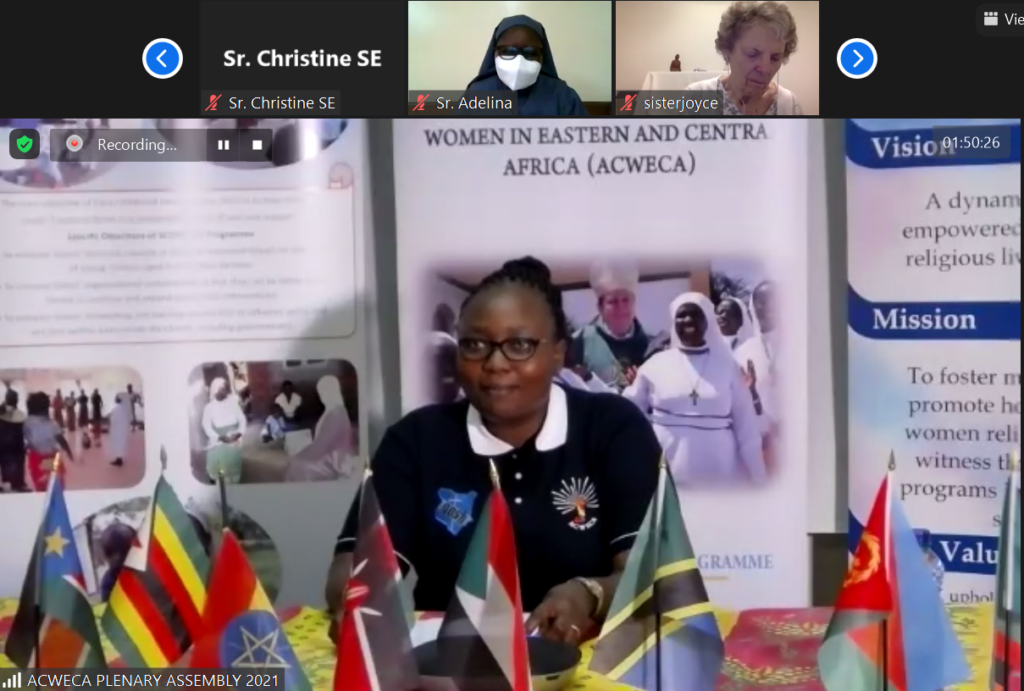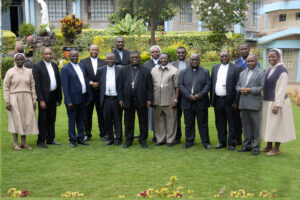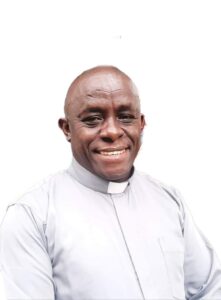ACWECA: Member Associations share reports of successes, amidst challenges

Ginaba Lino
Member Associations of ACWECA in Kenya, South Sudan, Eritrea, Uganda and Zimbabwe have presented their reports to 18th ACWECA Plenary Assembly in which they highlighted achievements and challenges over the past years and their future plans.
The report of the Association of Sisterhoods of Kenya (AOSK) elaborated the implementation of the strategic plan of ACWECA 2017-2022 and highlighted service programs, infrastructure development, governance, human resource and sustainability.
The report also includes activities carried out by AOSK focusing on formation and mission, families, and youth ministry, justice peace and integrity of creation, organizational development and response to Covid-19
On capacity building of formators, it was reported that there has been ongoing programs on how to train the formators for them to carry out their mission effectively, preparation for vows for the young Sisters, workshops that targeted Sisters at different ages and that AOSK continued with ongoing formation across all AOSK District Units in Kenya.
Under justice, peace and integrity of creation, they addressed issues of injustice, especially those related to women and children. And with the support from partners, the Religious women in Kenya held activities to address issues of environment conservation.
Furthermore, the interconnection between the members in different focus groups allowed joint mobilizations to celebrate the international world days.
On development and growth, AOSK continued to establish the right motivators and to structure the Association to suit the strategies, proposal development, program designs and adaptive management.
In response to the Covid19 pandemic, AOSK through Catholic Care for Children in Kenya (CCCK) facilitated the distribution of foodstuffs, protective gears, hand sanitizers, soap and tippy taps for hand washing. AOSK appreciated all their donor partners for their continued support.
Eritrea also presented their report which included achievements and recommendations. The report which was made under their umbrella organization, the Association of Consecrated Women in Eritrea, (ACWE) focused on the strengthening of initial and ongoing formation. And in line with this, they conducted workshops to junior Sisters in temporary vows, workshops for novices, training of formators and spiritual directors.
Eritrea also strengthened leadership through workshops for community animators, capacity building for formators, financial management and accountability respectively.
In development, growth and issues of justice and peace, Eritrea trained sisters in schools and health units but also held a workshop on human trafficking.
And for the sisters in Eritrea, Covid-19 pandemic has been one of the challenges in carrying out their activities effectively, while government restrictions, communication and general poverty in the country still remain other major challenges.
To ACWECA, they recommended projects that aim at eradicating poverty, and training on peace building.
Meanwhile, Sr. Alice J Drajea of South Sudan Sisters Association, (SSSA) presented their report which underlined Association’s focus on leadership. Hence, workshops, capacity building for formators and some courses for Sisters in ministries were conducted.
In the area of Justice, Peace and Integrity of Creation, the Association has strengthened JPIC structures and enhanced sisters’ involvement on JPIC issues in the country. Some of their activities included producing books, joint women march for peace as well as engaging university students on issues of justice.
The association also reported enhancement of governance, organizational management, formation of Catechists in the PALICA (CMS), improvement on networking and communication.
On their response to Covid-19, she said this was one of the areas they targeted to ensure that communities protect themselves from the disease. They locally produced face masks and distributed them to the communities and schools together with sanitizers.
The Association also encouraged cultivation for self-reliance among members especially during the lockdowns, and promoted home growing of organic healthy foods within communities.
Among the challenges facing the Association, the report highlights insecurity in the country, high cost of living due to daily increase of food prices on the market, lack of adequate of human resources to train formators and insufficient funds to complete projects.
They also reported as priority the need for more vocation, diversified education, adult education and more support to congregations.
In the report of Uganda, the umbrella body for the religious highlighted their achievements which included the establishment of ARU office for formation ministry for the Religious in Uganda and the development of a formation guide book in partnership with Porticus.
Through ACWECA-Hliton formation fund, ARU has continued to train and empower formators in Uganda. It also identified ten (10) Sisters to train in Philosophy and Theology studies since last year 2020.
On strengthening leadership programs, ARU reported trainings on leadership skills, economy at service of chrisms and mission, canon law and Enneagram. On justice, peace and integrity of creation ARU’s report included rescue, treatment and resettlement of victims of human trafficking, empowerment of the youth and survivors with technical skills and advocacy through the Parliament of Uganda.
At ARU, response to Covid-19 focused on giving psycho-social and psycho-spiritual support, distribution of food items to different institutes and awareness creation, as Covid19 still remains a major challenge to the Ass0ciation.
The report of Zimbabwe presented by Sr. Mercy Machona also highlighted the activities which the Association has implemented over the past few years. It focused on the formation and mission which are the priority for the Conference of Major religious Superiors in Zimbabwe.
Sr. Mercy said the objective of the Association is to enhance initial and ongoing Religious formation and student formators which began since 2018 with 14 candidates.
Their association also emphasized the safeguarding of children as this is an important issue.
Meanwhile, the central office’s main task has been to facilitate smooth communication between the members and Bishops. She added that their Association is planning to have video conference on different formation programs.


